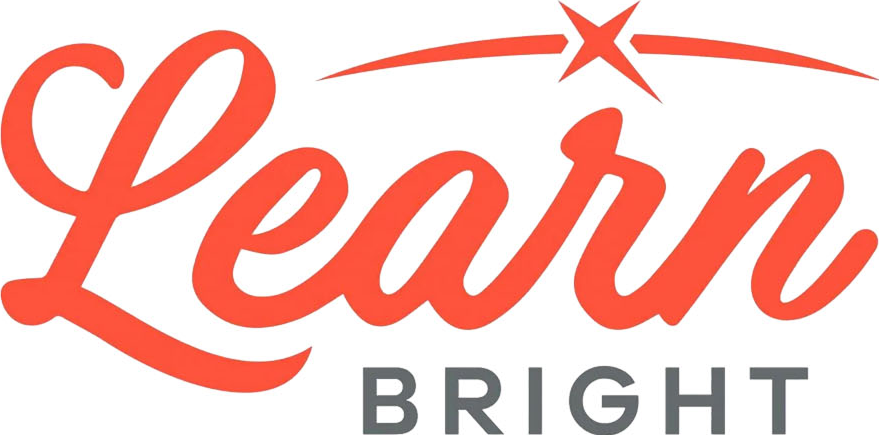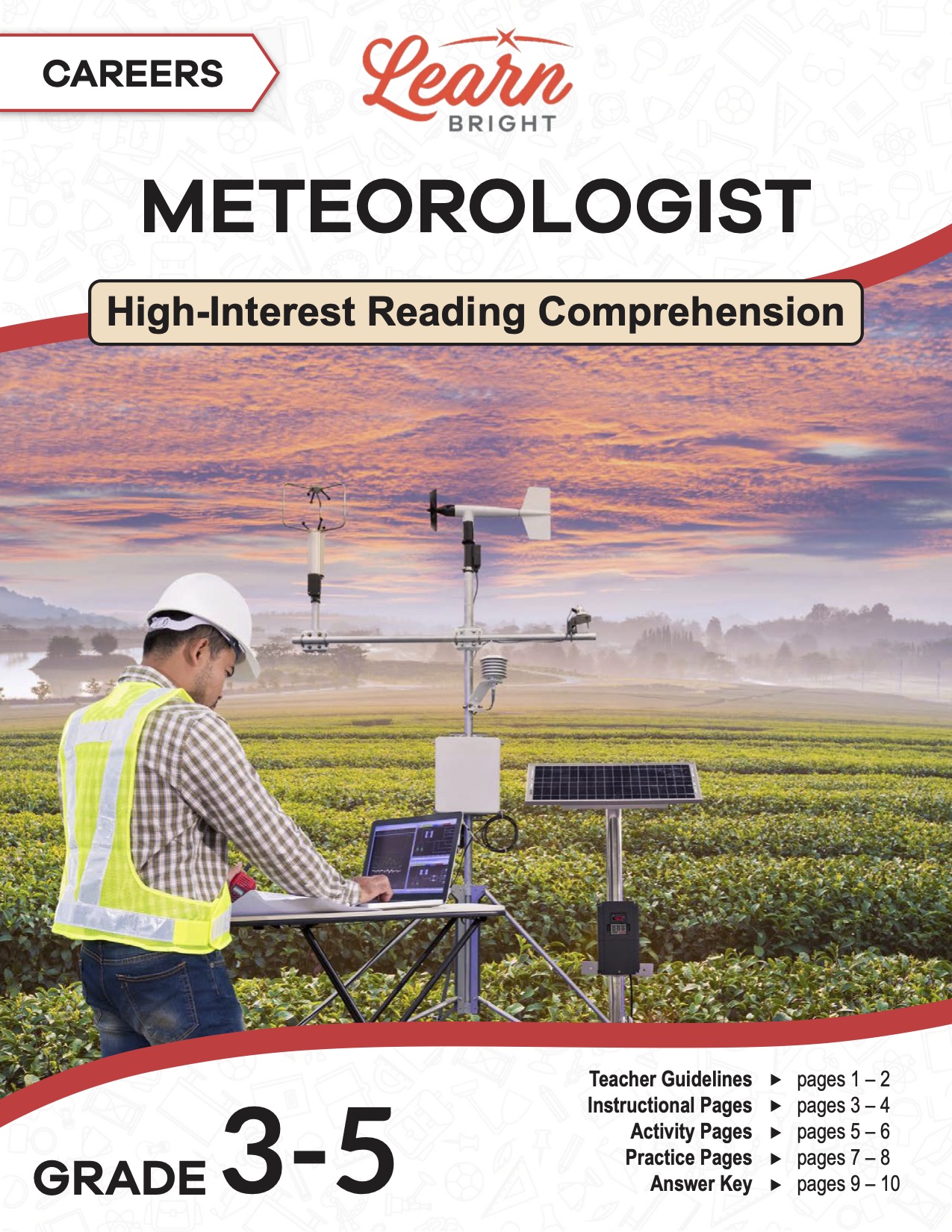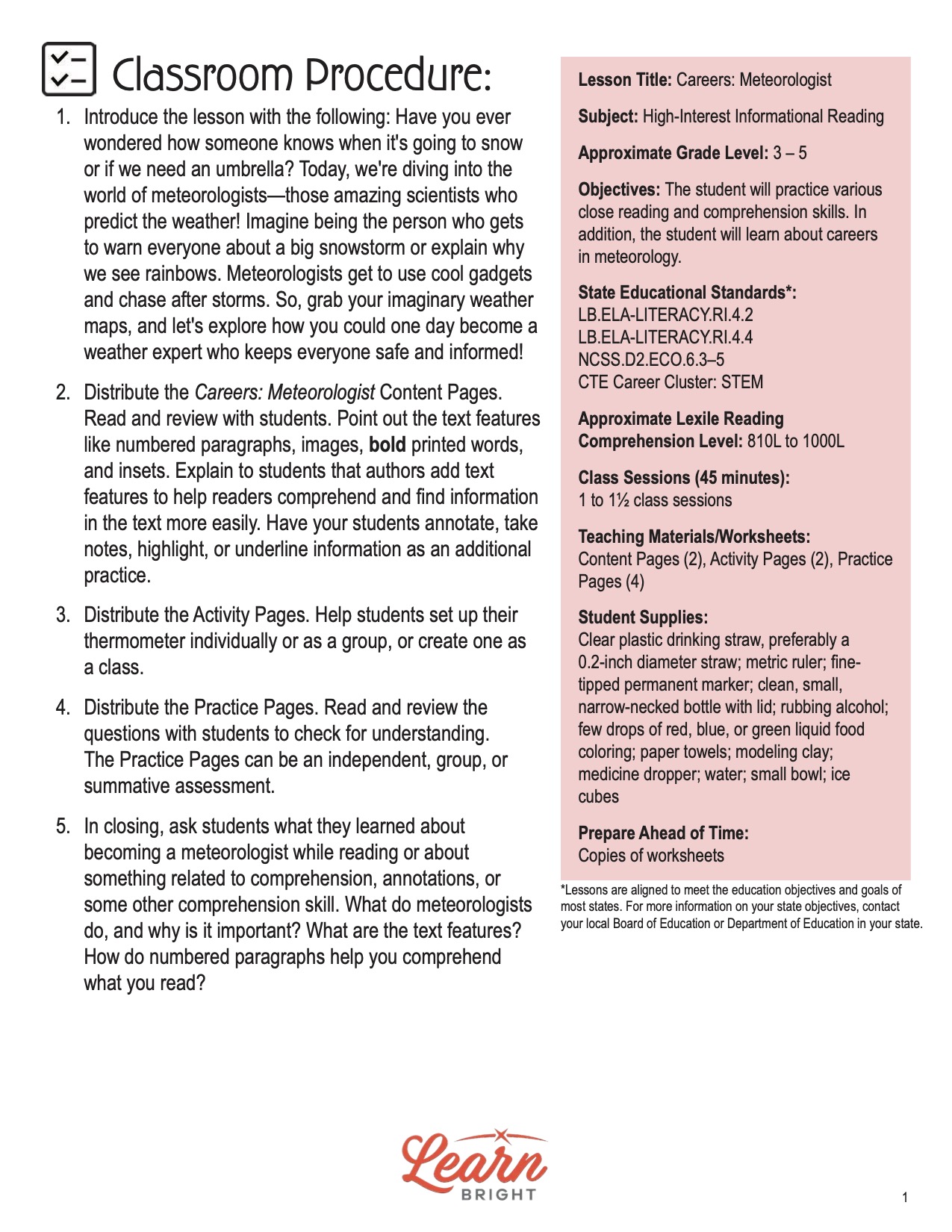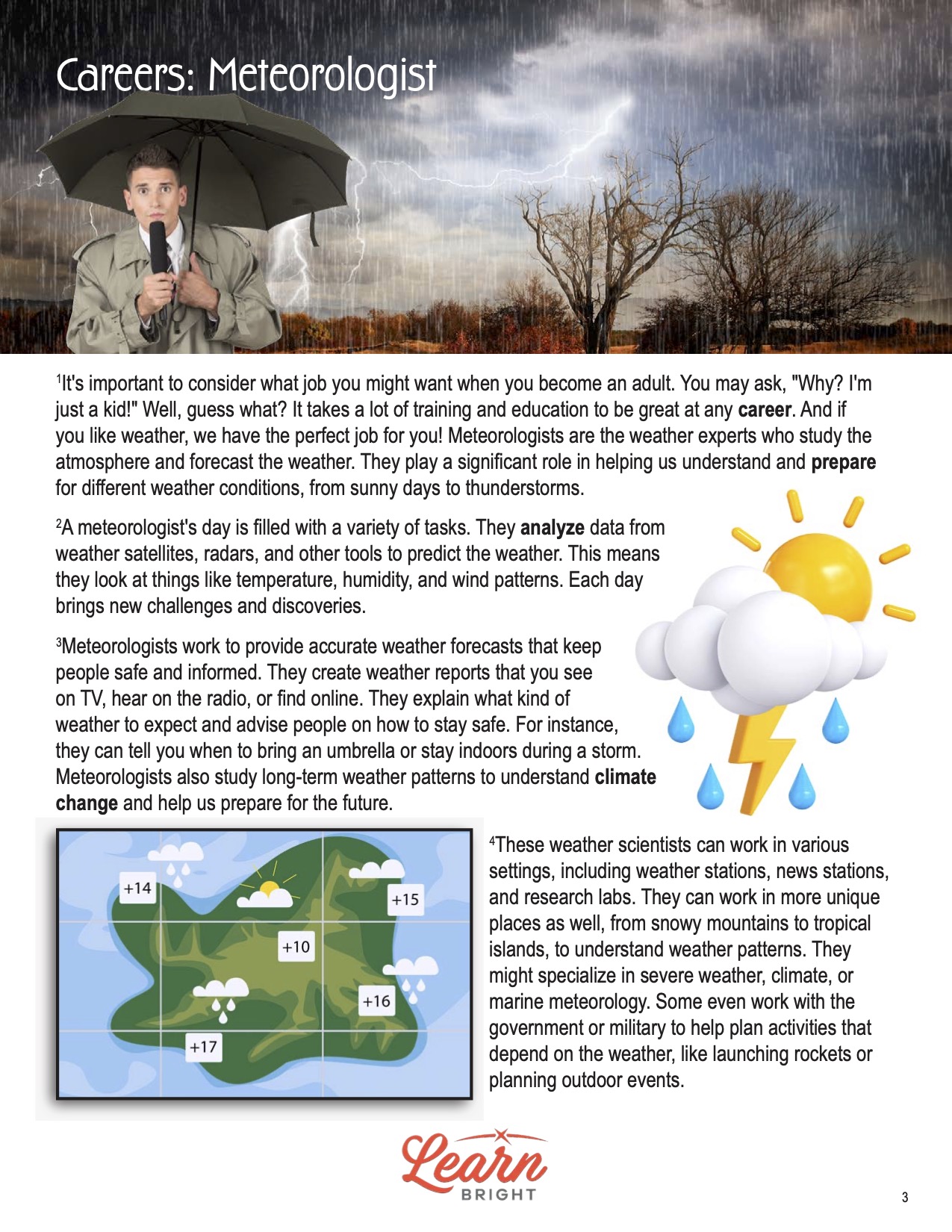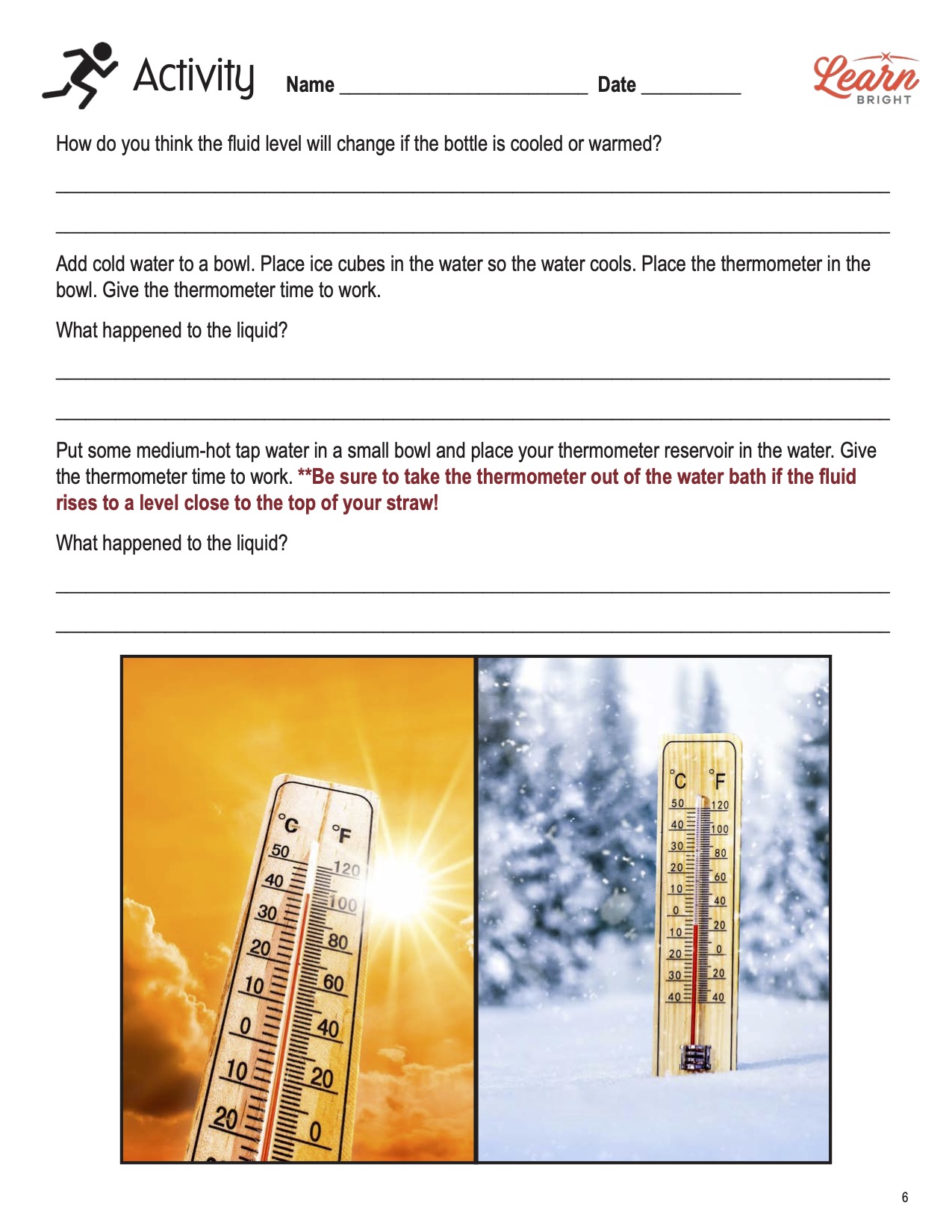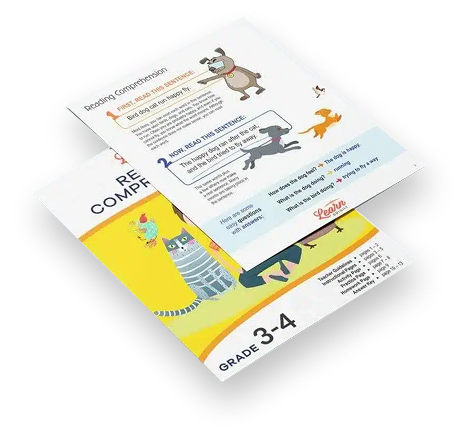Description
What our Careers: Meteorologist lesson plan includes
Lesson Objectives and Overview: Careers: Meteorologist is a high-interest reading comprehension lesson plan. As such, students will practice various close reading and comprehension skills. In addition, they will will learn about careers in the field of meteorology. This lesson is for students in 3rd grade, 4th grade, and 5th grade.
Classroom Procedure
Every lesson plan provides you with a classroom procedure page that outlines a step-by-step guide to follow. You do not have to follow the guide exactly. The guide helps you organize the lesson and details when to hand out worksheets. It also lists information in the yellow box that you might find useful. You will find the lesson objectives, state standards, and number of class sessions the lesson should take to complete in this area. In addition, it describes the supplies you will need as well as what and how you need to prepare beforehand. Check the student supplies section for the list of materials you’ll need for the activity.
Teacher Notes
The teacher notes page provides an extra paragraph of information to help guide the lesson. It explains that you can teach this lesson in a whole-class setting or as an independent, small-group activity. You can use the blank lines to write down any other ideas or thoughts you have about the topic as you prepare.
CAREERS: METEOROLOGIST LESSON PLAN CONTENT PAGES
Intro to Meteorologists
The Careers: Meteorologist lesson plan contains two content pages. It’s important to consider what job you might want when you become an adult. You may ask, “Why? I’m just a kid!” Well, guess what? It takes a lot of training and education to be great at any career. And if you like weather, we have the perfect job for you! Meteorologists are the weather experts who study the atmosphere and forecast the weather. They play a significant role in helping us understand and prepare for different weather conditions, from sunny days to thunderstorms.
A meteorologist’s day is filled with a variety of tasks. They analyze data from weather satellites, radars, and other tools to predict the weather. This means they look at things like temperature, humidity, and wind patterns. Each day brings new challenges and discoveries.
What They Do
Meteorologists work to provide accurate weather forecasts that keep people safe and informed. They create weather reports that you see on TV, hear on the radio, or find online. They explain what kind of weather to expect and advise people on how to stay safe. For instance, they can tell you when to bring an umbrella or stay indoors during a storm. Meteorologists also study long-term weather patterns to understand climate change and help us prepare for the future.
These weather scientists can work in various settings, including weather stations, news stations, and research labs. They can work in more unique places as well, from snowy mountains to tropical islands, to understand weather patterns. They might specialize in severe weather, climate, or marine meteorology. Some even work with the government or military to help plan activities that depend on the weather, like launching rockets or planning outdoor events.
Day in the Life of a Meteorologist
A typical day for a meteorologist starts early with gathering data from satellites, radars, and weather stations to analyze current conditions. They create weather maps and forecasts, often appearing on TV or radio shows to share updates. They also write reports and answer questions about the weather. Some work on research projects, studying climate change or developing new forecasting methods. Their day involves a mix of science, communication, and problem-solving to help people understand the weather.
Meteorologists sometimes report the weather live during certain natural disasters, like hurricanes and tornadoes. They use tools like weather balloons and Doppler radar to see what’s happening inside the storms. Some meteorologists even chase tornadoes to study them up close! Meteorologists often see rare weather phenomena like double rainbows or ice halos before anyone else. Their job is not just about predicting rain; it’s also about exploring the incredible wonders of our atmosphere. Plus, they sometimes get to name the storms.
Becoming a Meteorologist
To become a meteorologist, you need to have a strong understanding of math and science. Participating in STEM programs is very helpful in elementary, middle, and high school. If you plan to be a television meteorologist, learning communication skills and how to make presentations will help you as well. Most meteorologists have a college degree in meteorology or atmospheric science. They often gain practical experience through internships or by working with experienced meteorologists. Continuing education is also essential, as meteorologists must stay updated on their field’s latest technology and research.
As a meteorologist, you can earn a starting salary of around $60,000 per year, depending on experience and location. Many television personalities earn considerably more. The opportunity to help people by providing important weather information and the chance to explore the fascinating world of weather makes it an exciting career choice.
If you’re interested in weather and enjoy science, this might be the perfect job for you. Whether you’re fascinated by tornadoes, snowstorms, or sunny skies, you would have the chance to study it all. Meteorologists master the mysteries of the atmosphere. So, if you dream of predicting the weather and helping people stay safe in a unique way, consider a career as a meteorologist!
CAREERS: METEOROLOGIST LESSON PLAN WORKSHEETS
The Careers: Meteorologist lesson plan includes two worksheets: an activity worksheet and a practice worksheet. Each one will help students solidify their grasp of the material they learned throughout the lesson. You can refer to the classroom procedure guidelines to know when to hand out each worksheet.
THERMOMETER BUILD ACTIVITY WORKSHEET
For this activity, students will build their own thermometers. Using the materials you provide, they will build the model of a working thermometer that they will be able to test. When they complete the build, students will conduct a short experiment and answer a few questions on the second worksheet page.
CAREERS: METEOROLOGIST PRACTICE WORKSHEET
The practice worksheet lists 10 questions based on the content. These questions all relate to the content pages, so students will need to refer to them often for the answers. In addition, each question provides which reading tool the question corresponds to, such as text feature, vocabulary, or comprehension.
Worksheet Answer Keys
At the end of the lesson plan document are answer keys for the practice worksheet as well as the activity. If you choose to administer the lesson pages to your students via PDF, you will need to save a new file that omits these pages. Otherwise, you can simply print out the applicable pages and keep these as reference for yourself when grading assignments.
